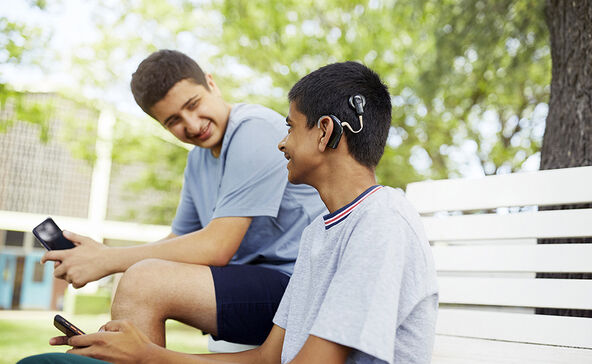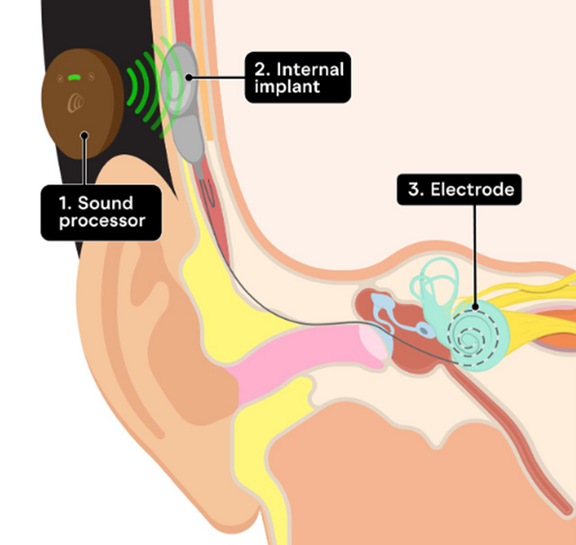What is a cochlear implant?
A hearing (cochlear) implant is a device that stimulates the hearing nerve, known as the cochlea or auditory nerve, to provide access to high-quality, more detailed sound.
Unlike hearing aids which amplify sound, cochlear implants provide direct access to the cochlea and bypasses the damaged parts of the inner ear.
How cochlear implants work
Cochlear implants use two parts: the surgically-implanted internal ‘cochlear implant’ and an external ‘sound processor’.
- The sound processor’s microphones pick up sound from the world around you. The sound processor turns this sound into digital signals which are detected by the implant under the skin. The sound processor is held in place with a small magnet. It comes in ‘on the ear’ and ‘off the ear’ styles and various colours.
- The cochlear implant picks up the signal from the sound processor and sends tiny electrical pulses down a delicate wire into the inner ear or ‘cochlea’.
- These electrode pulses stimulate the natural hearing structures inside the cochlea. This allows the hearing nerves to send signals to the brain so you can hear.
Who are cochlear implants for?
Cochlear implants are suited to people with moderate to profound hearing loss in one or both ears, from newborns right up to people aged in their 90s. We provide services for people of all ages:
The technology is specifically designed for people with sensorineural hearing loss—meaning the loss is caused by damage to the inner ear. There are many causes of this type of hearing loss, and it can occur at any age.
For people with conductive hearing loss, there’s another solution—bone conduction implants; a form of implantable hearing technology that transmits the vibrations through the skull to the cochlea of the inner ear. Conductive hearing loss, is generally caused by damage to the other parts of the ear as a result of an obstruction, fluid or ear formation.
NextSense provides access to the technology, support and ongoing care for both cochlear and bone conduction implant recipients.






